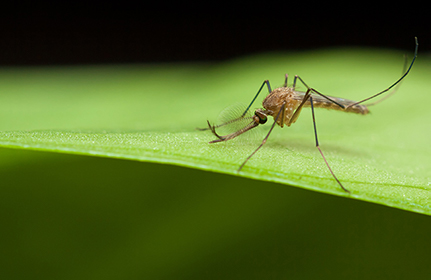Gene Drive: 21st Century Genetic Control of Agricultural and Public Health Pests
-

November 12, 2018
8:00 am - 10:45 amVancouver Convention Center
Vancouver, Canada
Dr. Andrew Roberts, Deputy Executive Director, delivered the presentation Environmental Risk Assessment of Gene Drive Insects at the Section Symposium: Gene Drive: 21st Century Genetic Control of Agricultural and Public Health Pests, which took place during the 2018 Entomology Society of America Annual Meeting in Vancouver, Canada.
More detailed information about the session is available on the Entomological Society of America website
Abstract & Presentation
Environmental Risk Assessment of Gene Drive Insects
Andrew F. Roberts, Agriculture & Food Systems Institute
The potential to use gene drive mechanisms to address intractable public health problems caused by vector-borne diseases has been of interest to scientists for decades, but recent advances in molecular biology have brought this idea closer to feasibility and consequently into the public consciousness. To begin discussions in Africa that will facilitate the consideration of potential future use of gene drive technologies to control malaria, the New Partnership for African Development (NEPAD) organized a series of regional consultations taking place in 2016-2018. Drawing from his experience in facilitating problem formulation exercises at these consultations, as well as other sources, I will share some of my own conclusions about the utility (and the necessity) of applying an organized scoping process like problem formulation to better inform the risk assessment process, especially as it relates to new technologies or new uses of technology. I will also review commonly identified assessment endpoints that can provide guidance to future risk assessments for gene drive mosquitoes. These include potential alterations to vectorial capacity that might impact human or animal health, the potential for aquatic larvae to influence water quality, and the potential for harm resulting from altered ecosystem interactions.
Agenda
8:00 am
Introductory Remarks
David A. O’Brochta, Foundation for the National Institutes of Health (Organizer)
Blair D. Siegfried, University of Florida (Organizer)
Scott T. O’Neal, Virginia Polytechnic Institute and State University (Moderator)
Peter D. Jensen, Monsanto Company (Moderator)
8:15 am
Natural Selfish Genetic Elements and Gene Drive - Their Relevance to Evolution
Gerald S. Wilkinson, University of Maryland
Kimberly Paczolt, University of Maryland
Josephine Reinhardt, University of New York
8:35 am
Engineered Gene Drives - Types and Mechanisms
Omar Akbari, University of California, San Diego
8:55 am
Gene Drives for Public Health - Modifying Vector Populations
Rebeca Carballar-Lejarazú, University of California, Irvine
9:15 am
Gene Drive Performance - Insights from Modeling
Alun Lloyd, North Carolina State University
9:35 am
Gene Drives for Agricultural Insect Control
Max Scott, North Carolina State University
9:55 am
Ethics, Social, and Community Considerations Raised by Gene Drives
Claudia Emerson and Aaron Roberts, McMaster University
10:15 am
Environmental Risk Assessment of Gene Drive Insects
Andrew F. Roberts, Agriculture & Food Systems Institute
10:35 am
Gene Drives for Public Health - Suppressing Vector Populations
Austin Burt, Imperial College of London
Tony Nolan, Imperial College of London
